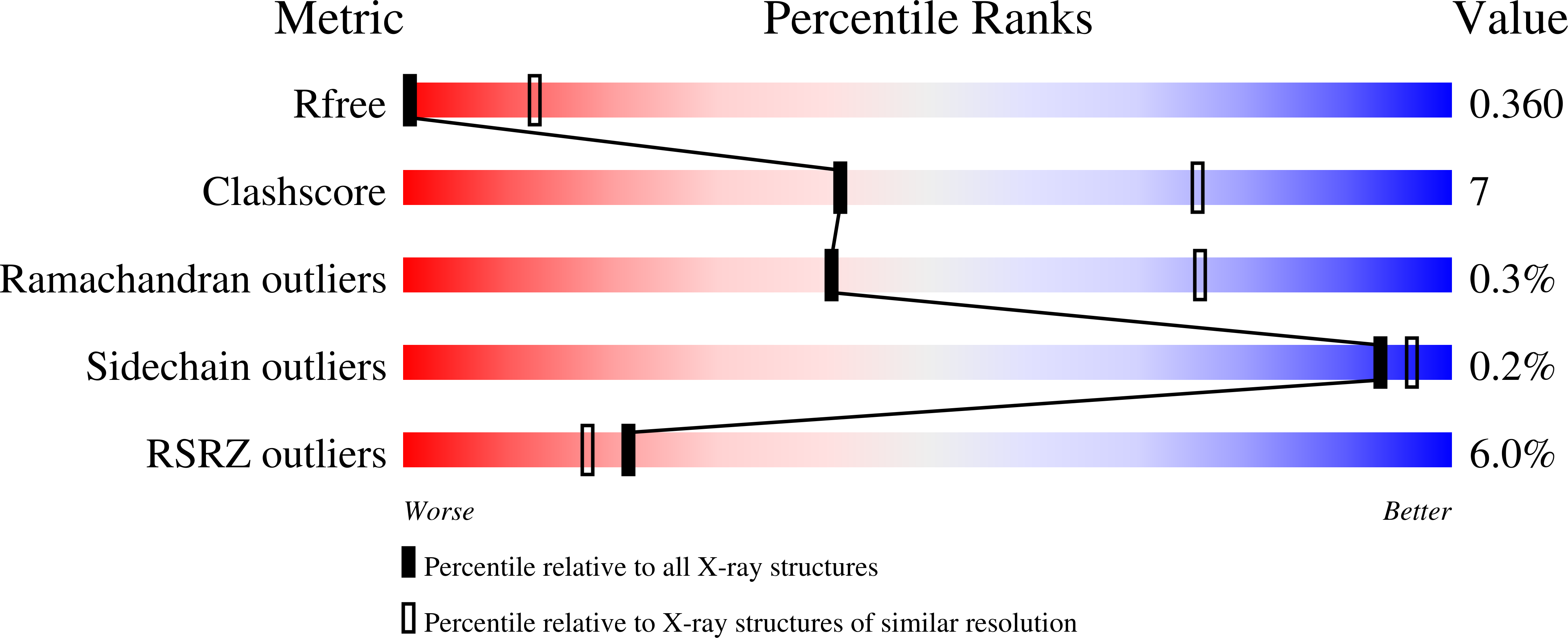
Deposition Date
2023-12-25
Release Date
2024-03-13
Last Version Date
2024-10-09
Entry Detail
PDB ID:
8RKI
Keywords:
Title:
Molecular basis of ZP3/ZP1 heteropolymerization: crystal structure of a native vertebrate egg coat filament fragment
Biological Source:
Source Organism(s):
Oryzias latipes (Taxon ID: 8090)
Method Details:
Experimental Method:
Resolution:
4.20 Å
R-Value Free:
0.36
R-Value Work:
0.32
R-Value Observed:
0.33
Space Group:
P 31 2 1


